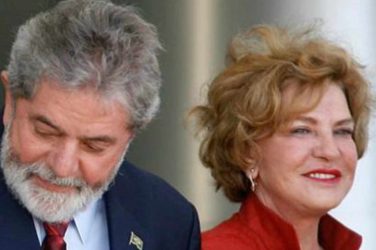
Brazil’s Chamber of Deputies on Monday night (October 10) voted 366-111 (with two abstentions) to approve a constitution amendment bill that will cap public spending for the next 20 years.
The draft must now undergo a second-round vote on the lower house floor before it proceeds to the Senate.
Dubbed the “New Fiscal Regime” by the government, the measure will limit the annual growth rate of federal spending in the next 20 years to the previous year’s inflation rate.
If the government fails to stay within this limit, it will be prohibited from hiring staff, running civil service entry examinations, raising staff pay, and creating or changing government jobs that incur additional costs.

For opposition lawmakers, limiting federal spending to the inflation rate is not the way to boost the economy, and will actually hurt investment in healthcare and education. Moreover, they argue, it is an issue that should have been discussed with the population.
The leader for the Workers’ Party (PT) at the lower house, Afonso Florence, said the proposal will “dismantle all public policy, the social security system, SUS [the public healthcare system], and state-run higher education.”
Government allies contend that the budget crisis was “inherited” from the Workers’ Party administrations that preceded the current government. “The PT was a spendthrift,” said Deputy Duarte Nogueira of the Brazilian Social Democracy Party (PSDB).
They maintain that the so-called “New Fiscal Regime” will drive economic growth and, contrary to what the opposition says, will not take away funding from health and education.
“Next year, we will be adding an extra US$ 3.1 billion to healthcare alone,” said Deputy Baleia Rossi, leader of President Temer’s PMDB party. “Similarly, all funding for education policy is guaranteed. We’re committed to the floor not the ceiling. These lies won’t stand.”
According to the draft of the austerity proposal, as of 2018, the funds for these two areas will no longer account for a fixed share of the total government revenue; instead, their growth pace will be limited to the inflation rate like all other costs.
In a statement thanking deputies for passing the amendment, President Michel Temer said “restoring fiscal balance is not a goal in itself, but a means to restore growth, reduce interest rates, and revive employment.”
According to him, a balanced budget means a guarantee that there will be enough funding for anti-poverty welfare policy, health, and education in the future.
Corruption Investigations
Brazil’s Prosecutor-General’s Office questioned the constitutionality of President Michel Temer’s proposed public spending cap and recommended that Congress shelve the austerity measures.
The office said in a statement the proposal interferes with the autonomy of other federal powers and would weaken the country’s judicial system, handicapping efforts to combat corruption.
“The proposal invades the judicial system budgeting competence drastically, risking to impact the exercise of its constitutional and institutional functions,” the statement said.
The unprecedented constitutional amendment, which limits the growth of federal spending to the rate of inflation for 20 years, is aimed at gradually closing a yawning budget gap that topped 10% of GDP last year.
It is the first of a series of austerity measures to assuage market concerns that the once-booming economy, which was stripped of its investment grade rating last year, could be hurtling towards a debt crisis. A lower house committee approved the proposal Thursday, handing Temer an initial victory on the battle to pass the amendment.
Its approval requires two votes in the plenary of the lower house and two more in the Senate, needing a three-fifths majority in each. The Prosecutor-General Office also said it was worried that the spending limits could affect a major investigation into corruption in Brazil and asked that money for that type of work be left out of the spending limits.
Rodrigo Janot, the Prosecutor-General, leads the ongoing probe into Brazil’s biggest corruption scandal centered around state-controlled oil company Petrobras.
ABr/MP











